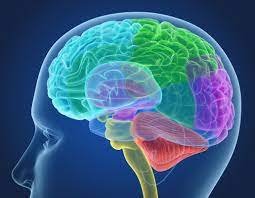Alzheimer’s disease and the lack of vitamin D
What is the link between AD (Alzheimer’s disease) and vitamin D? We have two ways to get the vitamin D, first, when the sun converts a cholesterol molecule from our body (7 dehydrocholesterol) into vitamin D (inactive form), which in turn is converted in the active form, or second, by taking vitamin D supplements (ideal if we work on nightshift or we stay a lot inside a building, or we wear a lot of clothes covering most of our skin, or too much sunscreen cream, or in the winter when the day is shorter — September to March). Once the active form of Vitamin D is present in our body, a vitamin D receptor (VDR) bind to it, alowing it to pass via the cellular membrane, into the cell nucleus, and by doing this will activate over 800 genes (some responsible for reducing inflammation and for creating and maintaining synapses in the brain, via enzymes from the brain and the cerebrospinal fluid). There are VDR (vitamin D receptors) in the CNS (central nervous system) and hypocampus. Vitamin D it is also regulating the insulin levels, with a role in preventing the IR (insulin resistance), which we already learned that is one of the risk factors in AD.
Low levels of vitamin D are linked to cognitive impairment, decreasing the information processing speed (cognitive impairment can be one of the symptoms preceding Alzheimer’s disease)
The vitamin D is measured in the blood stream as 25-hydroxycholecalciferol, and even if the accepted normal values are 20–80 ng/ml, you may want to reach a level of 50–80 ng/ml. Supplementing with a dose higher than 4000 UI per day (the upper limit) can be toxic for the body, leading to calcification of the bones and blood vessels and organs hardening.
Fun fact, even if it is called vitamin, the vitamin D is in fact a prohormone (hormone precursor).
All my books are self-published on Amazon. I have written all my life, mostly poetry and short fiction. I care about me. I care about others. I care as a job.
Previous related posts:
How to (not) lose your mind — a (not so) original approach on Alzheimer’s disease (1)
Alzheimer’s disease and vitamin B group optimal levels (2)
The homocysteine blood test, hippocampus atrophy and cognitive decline (3)
Alzheimer’s disease and the insulin resistance (4)
Alzheimer’s disease and the inflammation (5)
Next one will be about hormone imbalance.
Have a nice day!
George

I think I don't fully understand your post. Sorry if that is a stupid question, but is your post meant to give an answer to that question or raise it?
In this series of article i am just trying to provide information about the normal values of different blood tests and other methods of measurement. As a reference to you, if you have any of these tests to check if it is within the normal values or not. There is not enough research about some of them, so many of my articles just inform about some theories.
If i would have the answer, then a treatment for Alzheimer would be available. There is no cure yet. Only medication to decrease the speed of the onset of the illness.
Understood, thanks!